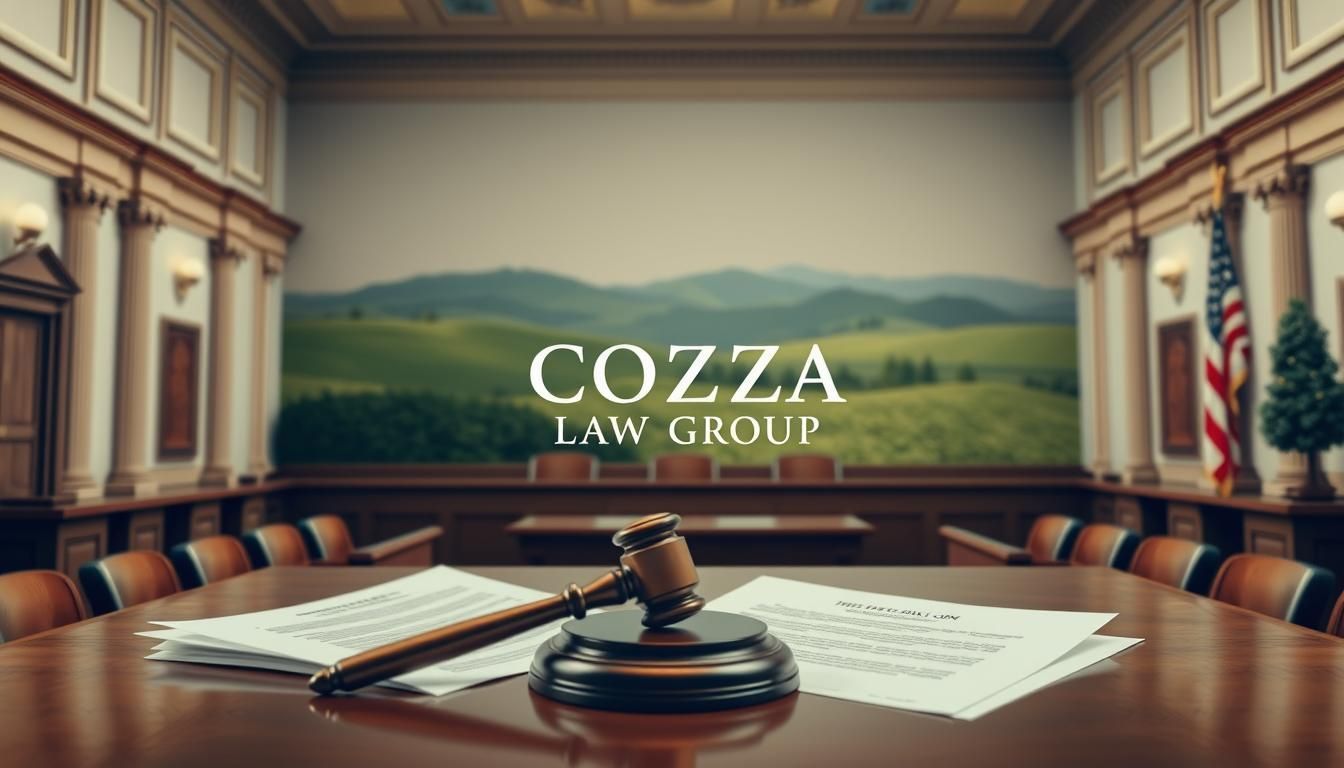PA Estate Probate: Value Threshold for Proceedings

When someone dies in Pennsylvania, their estate might need to go through probate. This legal process makes sure assets, debts, and inheritance tax are handled right. The estate's value is key in deciding if probate is needed. Knowing about Pennsylvania probate laws helps families get through this tough time.
The probate process in Pennsylvania means checking the will, picking an executor, and managing the deceased's money matters. Not every estate needs probate, as who owns the assets and who gets them matters. Knowing this can make things faster and cheaper for everyone involved.
Key Takeaways
- Probate is needed for some estates in Pennsylvania
- The estate's value affects if probate is required
- Pennsylvania probate laws guide the process
- Who owns assets and who gets them impacts probate
- Understanding probate helps make settling estates easier
Understanding Probate in Pennsylvania
Probate is key in settling estates in Pennsylvania. It makes sure assets are given out right after someone dies. Pennsylvania's laws guide how estates are managed, whether they have a will or not.
Definition of Probate
Probate is a process where a court checks a will and gives out assets. It finds out what the deceased owned, pays off debts, and gives what's left to the people who should get it. In Pennsylvania, courts make sure everything is done fairly and legally.
When Probate is Required
Probate is needed if someone dies with more than $50,000 in their name. This rule decides if an estate needs a full probate process. Estates with less might get simpler ways to handle things under Pennsylvania's laws.
Testate vs. Intestate Estates
Estates are either testate or intestate:
- Testate estates have a will. The executor must give this will to the right Pennsylvania probate court. To be valid, wills must be written and signed by the person making it.
- Intestate estates happen when someone dies without a will. Then, Pennsylvania's laws decide how to share out the assets among the heirs.
The probate process can take a long time, often 9 months to 2 years. How big the estate is, how complex its assets are, and if there are disagreements can affect how long it takes.
How Much Does an Estate Have to Be Worth to Go to Probate in Pennsylvania
In Pennsylvania, the estate's value is key to deciding if probate is needed. Estates over $50,000 usually need full probate. This includes things like bank accounts, investments, and personal items.
Small estates worth less than $50,000 might get special probate exemptions. These include:
- Settlement by affidavit
- Summary administration
The $50,000 limit doesn't apply to real estate or some other properties. These exceptions are in section 3101 of the Pennsylvania Probate, Estates and Fiduciaries Code.
Knowing about Pennsylvania probate rules is vital for managing estates well. Executors must check the estate's value to pick the right probate process. This makes settling and giving out assets to heirs easier.
For estates under the limit, simpler procedures can save time and money. But, bigger estates need full probate to make sure all assets and debts are handled right.
Types of Assets Subject to Probate
Understanding probate assets is key for good Pennsylvania estate planning. Probate assets are items that go through a court process after someone dies. Let's look at the main types of probate assets in Pennsylvania.
Solely-Owned Real Estate
Real estate owned only by the deceased is a main probate asset. This includes houses, land, and other property in the decedent's name only. These assets need court approval to be given to heirs or beneficiaries.
Bank Accounts and Investments
Financial accounts in the deceased's name alone are part of the probate estate. These include:
- Checking and savings accounts
- Stocks and bonds
- Mutual funds
- Certificates of deposit
Personal Property
Items the deceased owned are probate assets. Examples are:
- Vehicles
- Jewelry
- Furniture
- Collectibles
Non-probate assets skip the probate process. These are things owned jointly, life insurance with named beneficiaries, and assets in living trusts. Good estate planning can cut down on probate assets. This makes passing on assets easier and can save time and money for your heirs.
Exceptions to Probate Requirements
Pennsylvania law has several probate alternatives that make settling estates easier. These options can save time and money for estates that qualify.
Small estates might get a simpler process. If the estate's value is under $50,000, executors can use a small estate affidavit. This lets them distribute assets quickly without full probate.
Joint ownership is another way to skip probate. When property is owned jointly with survivorship rights, it goes straight to the survivor. This avoids court steps.
Other ways to avoid probate include:
- Designating beneficiaries on financial accounts
- Creating payable-on-death bank accounts
- Setting up transfer-on-death registrations for vehicles or securities
Living trusts are a detailed way to dodge probate. By moving assets into a trust while alive, you ensure a smooth handover after death. This method offers privacy and might cut estate taxes.
Knowing these exceptions helps families manage the estate process better. Talk to a legal expert to see which probate alternatives fit your needs.
The Pennsylvania Probate Process
The probate process in Pennsylvania has several important steps. These steps help ensure the estate is handled correctly. They also help executors do their job well.
Filing and Appointment
The first step is filing the will and a petition at the Register of Wills office. Then, an executor is chosen to manage the estate. If there's no will, the court picks an administrator instead.
Notification and Inventory
The executor must tell creditors and beneficiaries about the estate. They also have to list all the estate's assets within nine months of the death.
Handling Finances
Executor duties include:
- Paying estate debts
- Settling tax obligations
- Managing estate accounts
It's important to pay debts in the right order to avoid personal liability. The executor should keep detailed records of all financial actions during estate administration.
Asset Distribution
After paying debts and taxes, the executor can start distributing assets. This means:
- Identifying beneficiaries
- Valuing remaining assets
- Transferring property titles
- Distributing funds
The probate process ends with the estate's closure. This requires a final accounting and court approval. Executors should get legal advice to handle this complex process well.
Conclusion
Dealing with probate in Pennsylvania can be complex, especially for estates over $50,000. It's crucial to understand probate to plan your estate well. Knowing which assets go through probate and which don't is key.
Many aim to avoid probate to save time and money for their loved ones. Planning ahead can help. This might mean setting up trusts or using legal tools to skip probate.
Getting legal help can greatly aid in managing probate. Our Frim Cozza Law Group PLLC offer expert advice. We ensure everything follows Pennsylvania laws and protects your beneficiaries.
Ultimately, good estate planning means peace of mind. It makes sure your wishes are followed and your family is looked after. With the right support and knowledge, you can confidently handle probate in Pennsylvania. Schedule a consultation with us today




